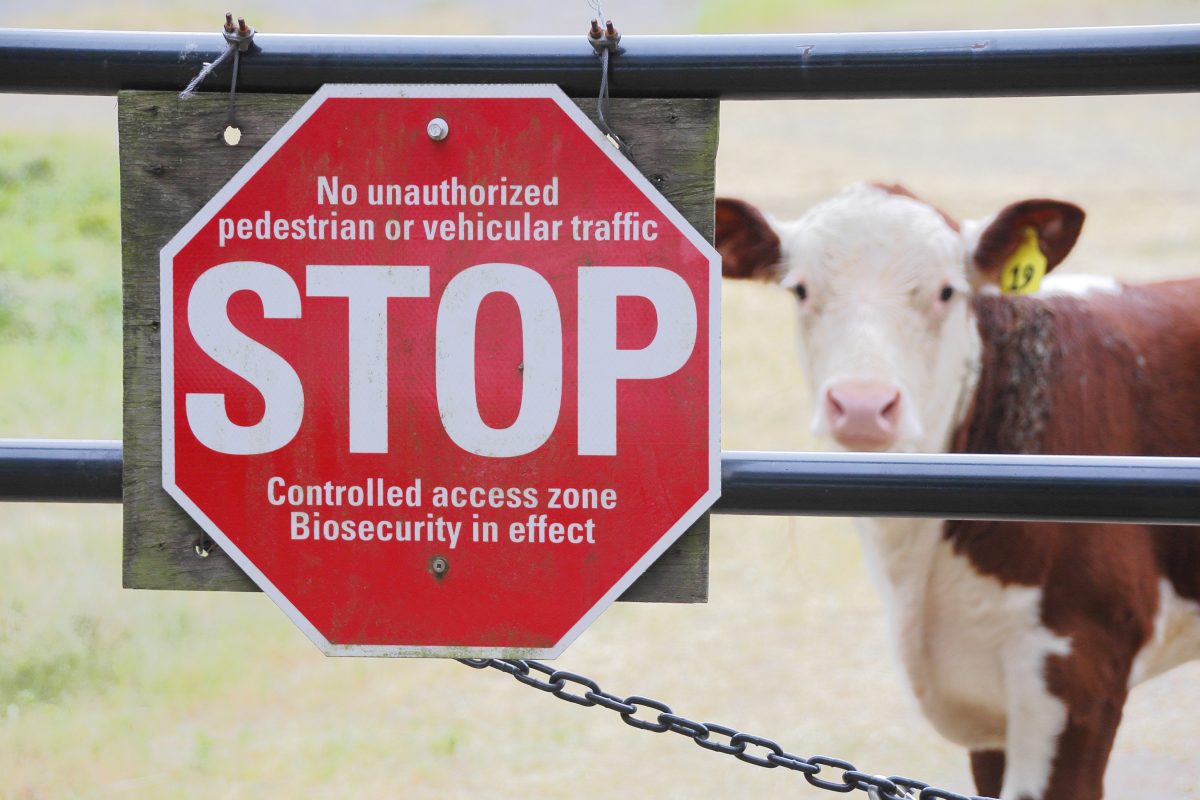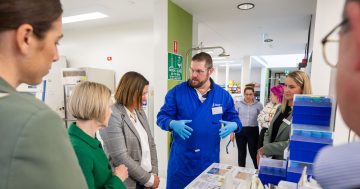
Biosecurity will be on the agenda at a NSW Farmers foot-and-mouth disease forum in Wagga Wagga this month. Photo: Modfos.
Wagga Wagga region farmers will be able to obtain the latest advice on dealing with foot-and-mouth disease (FMD) when NSW Farmers comes to town this month.
As part of a statewide series of meetings, NSW Farmers will host a forum in Wagga on Tuesday, 16 May, covering a host of issues to help primary producers manage any potential outbreaks of FMD on their properties.
The forums come just weeks after Indonesia announced the disease to be endemic in that country, presenting real risks to Australia’s primary industries given the two nations’ close trade relationship, and as Charles Sturt University (CSU) hosts training sessions for quarantine staff from Indonesia and Timor-Leste.
However, the Australian Government has publicly indicated it is confident Australia will remain free of the disease, with new biosecurity measures put in place at the nation’s airports since the initial discovery of FMD in Indonesia about a year ago.
The forums are part of industry-wide efforts to ensure producers are up to date on what to do to protect against the disease.
Farmers will be able to obtain advice on how to identify the disease and what to do if they suspect a case, find out what they can do on their properties and what NSW Farmers’ local land services do to prevent emergency animal diseases, as well as their work in pest animal control.
It comes as CSU’s Biosecurity Training Centre also works to improve biosecurity measures to protect farmers in Indonesia and Timor-Leste against FMD, lumpy skin disease and other exotic diseases, hosting 10 delegates from Timor-Leste for training in April, with another delegation from Indonesia expected this month.
The $700,000 CSU Train the Trainer program is being held at the university’s Wagga campus, with the institution working closely with the Federal Department of Agriculture, Fisheries and Forestry and its Indonesian and Timor-Leste counterparts to identify gaps in their capacity to detect and mitigate the risks of exotic disease outbreaks.
Academic director of CSU’s Biosecurity Training Centre Professor David Mackay, who is delivering the training, said the ever-changing global landscape, including economic and population growth across the Indo-Pacific, influenced how biosecurity systems needed to function to be effective.
He said he hoped the program would help Australia’s neighbours to be better prepared and improve their response and resilience to changing biosecurity risks.
“At this time, Indonesia and Timor-Leste are facing a number of significant risks in relation to foot-and-mouth disease and lumpy skin disease,” he said.
“Building biosecurity capability through the sharing of international best practice in border management, and animal and plant pests and diseases, will assist these near neighbours in their efforts to prevent and respond to a range of existing and new biosecurity risks.”
Federal Agriculture Minister Murray Watt said Australia had a long history of collaboration with Indonesia and Timor-Leste, and those efforts had been ”ramped up” since the May 2022 detection of FMD in Indonesia.
“This program will provide vital support to Indonesia’s efforts to control the foot-and-mouth disease and lumpy skin disease outbreaks there while assisting Timor-Leste to prevent and prepare for an incursion,” Mr Watt said.
You can register for the information session on the NSW Farmers website.









